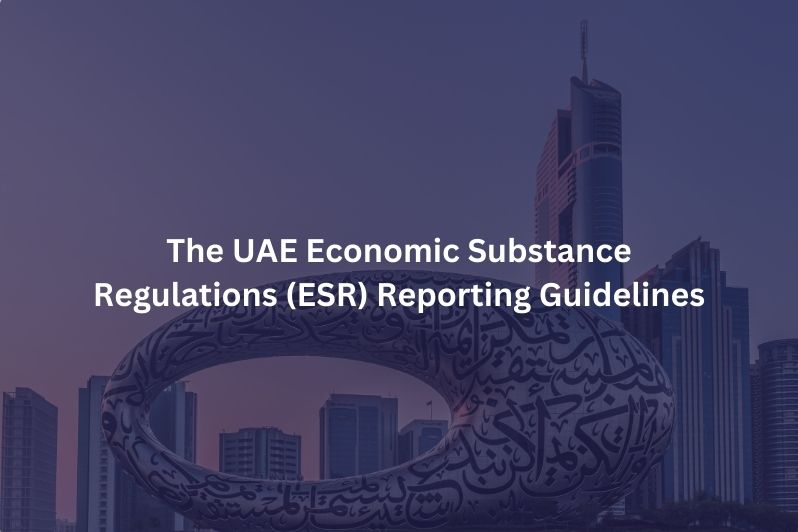The UAE Economic Substance Regulation(ESR) was introduced in 2019 to comply with international tax standards and increase transparency in the country’s business practices. The regulation compels companies operating within the UAE to demonstrate their substantial economic presence in the country and avert tax invasion and meet the relevant tax liability. This article seeks to shade light on how reporting requirements vary based on the size and type of company and provide guidelines for corporations to meet the Economic Substance Regulation’s test and to stay compliant with the Federal Tax Authority’s regulations and standards to which noncompliance accrues hefty fines.
Changes to Reporting Requirements and Submission Procedures
On June 30, 2021, the UAE Ministry of Finance (MoF) issued new guidelines on ESR reporting requirements and submission procedures. These updates have expanded and clarified the regulation and provided companies with more detailed instructions on how to comply. Some key changes include:
Expansion of Relevant Activities: The MoF has expanded the definition of “relevant activities” that are subject to the ESR. This now includes activities such as intellectual property holding, high-risk intellectual property development, and distribution and service centre activities.
Increased Disclosure Requirements: Companies must now provide more detailed information on their business activities, including the number of employees, type of equipment used, and location of assets.
New ESR Report Templates: The MoF has introduced new ESR report templates to standardize the reporting format and simplify the submission process.
Stricter Penalties for Non-Compliance: The MoF has introduced stricter penalties for non-compliance with the ESR. Companies that fail to comply with the requirements may face fines, penalties, and even the revocation of their business licenses.
Reporting Requirements and Variations by Company Size and Type
The Economic Substance Regulations reporting requirements differ based on the size and type of company. All companies engaging in relevant activities must submit an ESR report that demonstrates their substantial economic presence in the UAE. The level of detail required in the report varies based on the size of the company and the type of relevant activity they engage in.
Large companies engaging in high-risk relevant activities must provide more detailed information in their ESR reports than smaller companies. For instance, a company involved in intellectual property holding must provide information on the assets’ value held and the number of employees employed in the UAE. Similarly, a company involved in high-risk intellectual property development must provide data on the number of research and development activities conducted in the UAE.
Smaller and medium-sized companies engaged in relevant activities must provide less detailed information in their ESR reports. For example, a company engaged in distribution and service centre activities must provide information on the location of assets and the number of employees employed in the UAE.
Comparison with Other Countries’ ESR Reporting Requirements
The UAE is not the only country that has implemented economic substance regulations. Several other countries such as Bermuda, the British Virgin Islands, and the Cayman Islands have implemented similar regulations to prevent companies from using artificial profit-shifting techniques to evade taxes in the countries where they operate.
The reporting requirements for economic substance regulations vary from country to country. In some countries, such as the British Virgin Islands, companies are required to submit an annual report that demonstrates their substantial economic presence in the country. In contrast, other countries may require companies to provide more detailed information, such as their activities’ nature and the number of employees.
How to Make ESR Reporting More Efficient and Accurate
The following measures can be taken to make ESR reporting more efficient and accurate;
Review Relevant Activities: Companies should review the relevant activities they engage in to ensure they comply with the ESR requirements. They should identify which activities fall under the ESR guidelines and ensure they have the necessary documentation to prove a substantial economic presence in the UAE.
Maintain Accurate Records: It is crucial for companies to maintain accurate records of their business activities, such as the number of employees, the location of assets, and the equipment used. They should ensure that their records are up-to-date and align with the ESR guidelines to avoid any compliance issues.
Use Standardized Templates: The UAE Ministry of Finance has introduced standardized ESR report templates to simplify the submission process. Companies should use these templates to ensure they provide all the required information in the correct format. These templates are available on the official website of MoF for anyone who wants to know what information can be required at the time of reporting for ESR.

